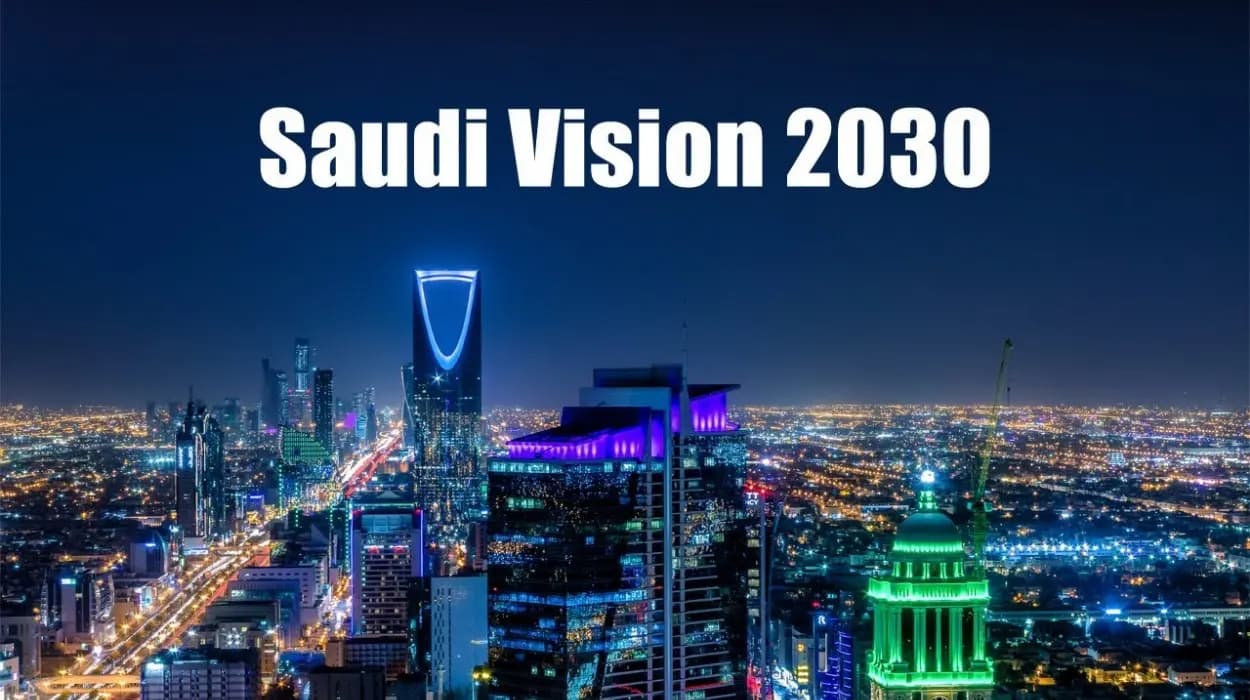Saudi Arabia's Vision 2030 stands as a groundbreaking roadmap redefining the Kingdom's future across economic, governmental, and cultural dimensions. Launched to reduce dependency on oil, fuel sustainable growth, enhance governance transparency, and enrich cultural life, Vision 2030 is an ambitious strategy led by Saudi leadership to create a diversified, knowledge-based, and globally integrated society. This article explores how Vision 2030’s multifaceted reforms are reshaping the economy, transforming governance, and revitalizing cultural institutions, setting Saudi Arabia on a path of enduring prosperity and modernity.
Economic Transformation: Diversifying Beyond Oil
At its core, Vision 2030 aims to lessen Saudi Arabia’s historic dependency on oil revenues, pivoting the nation towards a broadly diversified economy. This shift involves developing non-oil sectors such as tourism, mining, manufacturing, logistics, renewable energy, and digital technology. Facilitating a thriving entrepreneurial ecosystem, reforms focus on market liberalization, deregulation, and expansion of the private sector. Public investment funds and giga-projects like NEOM, the Red Sea Project, and Qiddiya exemplify strategic mega-initiatives boosting economic diversification and job creation.Significant strides involve increasing foreign investment openness and fostering local talent development through education reforms. The Kingdom targets expanding the private sector’s contribution to GDP, driving innovation, and raising homeownership rates via affordable housing schemes. E-government initiatives are enhancing service efficiency and accessibility, reflecting the broader goal to elevate citizens' living standards while improving business climates. These efforts intertwine for a holistic, sustainable economic future less vulnerable to oil market fluctuations.
Governance Reforms: Building Transparency and Efficiency
Vision 2030 recalibrates Saudi governance, emphasizing transparency, accountability, and streamlined government performance. Key reforms target reducing corruption through strict enforcement and establishing a more open, less opaque state apparatus. Digital transformation plays a cardinal role; e-governance systems are modernizing public services, enabling faster, more reliable citizen interactions with authorities.An integral governance objective is promoting societal participation and social responsibility, evidenced by ambitious volunteering targets and the growth of the nonprofit sector’s economic role. Enhanced government effectiveness indexes signal progress toward creating a lean, efficient administrative framework. This “Ambitious Nation” pillar under Vision 2030 fosters collaboration between public institutions, businesses, and citizens, contributing to a more empowered and connected society with sustainable growth trajectories.
Cultural Renaissance: Reviving Heritage and Creative Industries
One of Vision 2030’s most visionary components is its cultural sector reform. The Kingdom is investing heavily in arts, heritage preservation, and creative industries, casting culture as indispensable to quality of life and economic diversification. Cultural infrastructure projects—including museums, theaters, academies, and incubators—are underway to nurture talent and expand access to cultural participation.Large-scale developments such as the Diriyah Gate Cultural
District and King Salman Park highlight the integration of culture within
broader urban renewal and tourism strategies. The cultural economy is expected
to contribute a rising share of GDP, generate substantial employment, and
stimulate related sectors like hospitality and retail. Moreover, Saudi Arabia
is fostering vibrant creative hubs that blend traditional heritage with
contemporary arts, positioning the nation as an emerging global cultural
destination.
Saudi Vision 2030 is a comprehensive and transformative blueprint steering the
Kingdom towards a diverse, prosperous, and modern future. Its strategic reforms
in the economy reduce reliance on oil and promote innovation-driven growth.
Governance enhancements ensure transparency and citizen empowerment, while
cultural revitalization enriches societal fabric and economic dynamism. The
ongoing progress under Vision 2030 establishes Saudi Arabia not only as a regional
powerhouse but as a visionary nation ready for sustainable development and
global integration.
